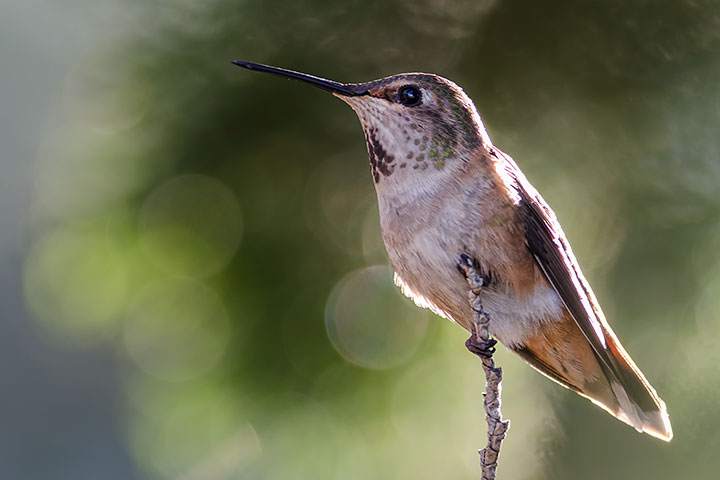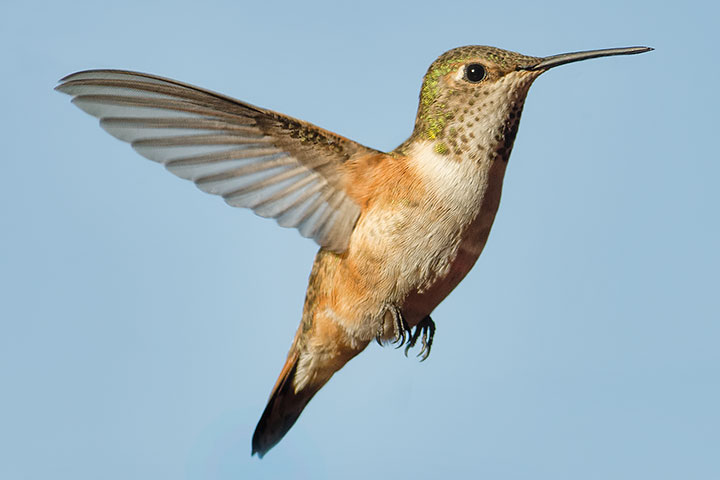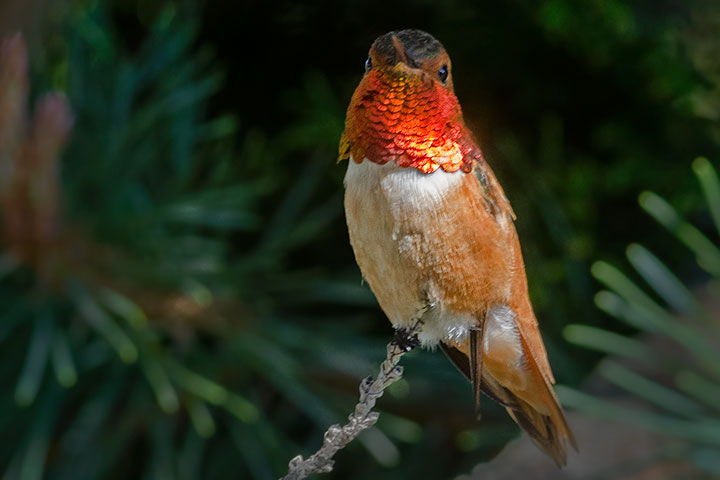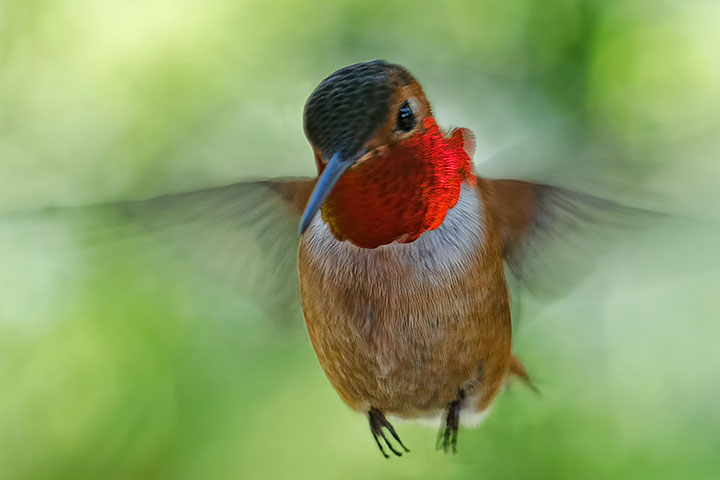Hummingbirds arrive late April or early May.
Of the three species we see—Rufous, Calliope, Blackchinned—the Rufous is usually the earliest arrival and the most common thereafter. I have seen the Rufous off and on for a couple of weeks now, but today was the first time I managed to photograph both the male and female in one day.
Below are four pictures taken today: the first two are of a female in a tree and flying; the second two are of a male in a tree and flying.





OK. I’m undone. Beautiful photographs Alistair!!
The gorget of the male looks tessellated, like scales of a pine cone, or a fish even. I understand colour,
but, how can a feather flash out such jewel tones?
Pamela, tessellated? yes, it is made up of individual small feathers. But, the colour does not come about by absorption by pigments (as is the case with most things you see—other than the blue of the sky), but by the interference of light waves reflected off of adjacent layers in a feather. If you visit my hummingbird page, and do a rollover of the third item down, you can see the colours of the gorget change as the head is turned. Most of the pictures I took yesterday of the male did not show the brilliant colour, but every now and then….
Outstanding!